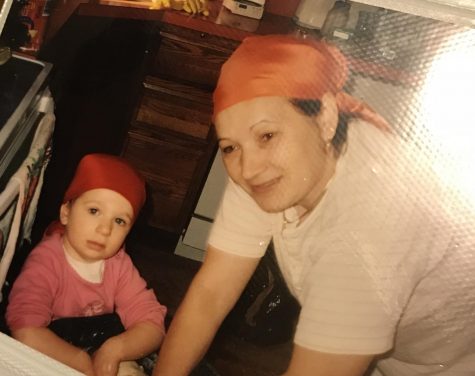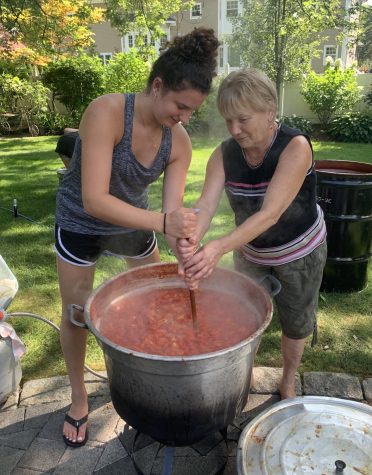Chat with Cat: A Foreign Accent is a Gift
In the latest installment of “Chat with Cat,” WSPN’s Caterina Tomassini reflects upon the stories behind peoples’ accents.
February 4, 2020
From the time I could walk, I identified strongly with my Italian heritage. For example, I learned to make bread with my nonna when I was seven years old, I memorized old Italian folk songs to sing with my family and I became used to restating my ethnic name, which nobody was able to pronounce.
Even today, ties to my ethnicity hold strong. Sundays are spent around the table, surrounded by fresh artisan pane, homemade sugo and a glass of vino, all topped off with warm biscotti and a cup of espresso. My garden gives me a sense of the farm where my grandparents grew up. I enjoy raising zucchini, tomatoes, basil and oregano as well as my peach, lemon, olive and fig trees. I am even fortunate enough to travel to Italy, where we enjoy the beautiful beaches and savor the taste of a gelato alla nocciola.

Unfortunately, my parents didn’t raise me speaking Italian. Although I could understand what my relatives were saying to me and produce wimpy sentences of my own, I was by no means fluent. Eventually, I took it upon myself to learn the language, so I hit the books and taught myself Italian. Within two years I was speaking, reading and writing like the rest of my family.
I was on Cloud 9 as I rolled my r’s and accentuated my vowels, but one day my confidence tanked. My friend, whose first language is Italian, made fun of my slightly American accent saying, “I have no clue what you just said. Your accent is horrible.”

Once I shoved the hurt aside, I was able to reflect on my friend’s rude comment. A foreign accent is not a sign of stupidity or inferiority, nor is it something to be embarrassed about. Rather, it’s a sign of bravery and adventure because it shows that I jumped out of my comfort zone and sought to learn a new language, tried something new and worked hard to achieve proficiency in my family’s native tongue.
Even if somebody does have a foreign accent, it doesn’t matter. The objective of language learning is to communicate and to be understood, not to be native.

Let me tell you about my geometry teacher, who speaks with a beautiful Hungarian accent: She is one of the smartest people and best teachers I know, and she has dozens of intriguing stories that detail her old life in Hungary. I would never think to belittle her, not only because it would be ignorant but also because she has accomplished so much in moving across the world and achieving her goals.
If a monolingual person has the courage to critique a language learner or immigrant, they should try to learn a second language. It is not an easy process, and many of us are often met with tough challenges, self-doubt and hopelessness. Ask your parents, grandparents or peers who’ve tackled a second, third or even fourth language, and I’ll assure you that they will intrigue you with their stories.
Opinion articles written by staff members represent their personal views. The opinions expressed do not necessarily represent WSPN as a publication.


























